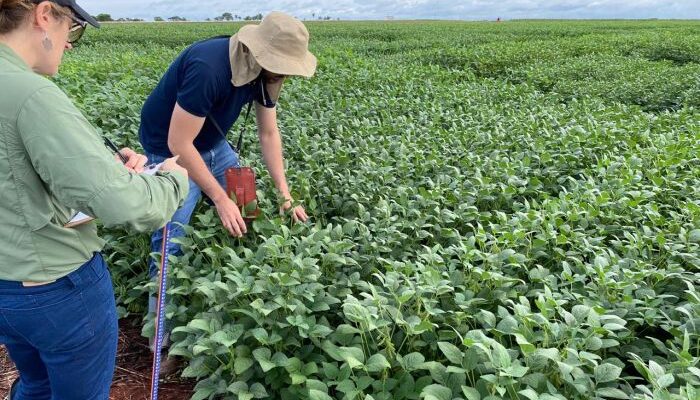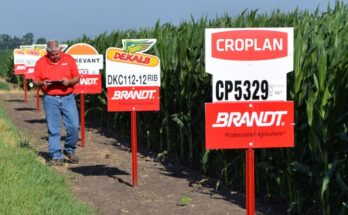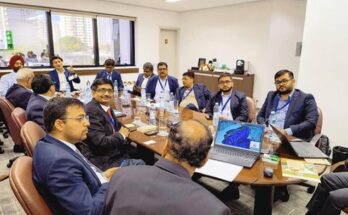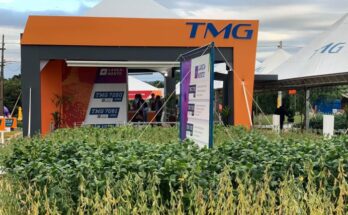Brazil: To increasingly improve genetic improvement processes and support strategic decision-making, TMG – Tropical Melhoramento & Genética (Tropical Breeding and Genetics), a Brazilian company providing genetic solutions for cotton, soybeans and corn, which works to deliver innovation to the field – has invested, in recent years, in new technological resources to supply an exclusive database with information collected at different stages of cultivar development. Among the tools used are RFID (Radio Frequency Identification), and traceability labels equipped with chips that identify, track and store data.
According to André Faria, Research Coordinator at TMG, currently 60 per cent of the processes that involve monitoring soybean cultivars from harvest to preparation for planting benefit from the use of labels. “Today, we can identify plots of cultivars with more precision and agility, in addition to reducing result analysis cycles. This identification allows us to know what stage of the test preparation process each sample is at, its characteristics and the results of each test, from the first planting, still in Research, until sent to the seed production sector. This helps the team of researchers to have the data they need more quickly and make decisions about which samples should move on to the next phases,” he said.
You may also like to read: Indústrias Colombo demonstrates cutting-edge technologies in agri machineries at Brazil Agrishow
The adoption of labels, according to Faria, enabled agility in handling thousands of plots planted last year, something that would have been impractical without using the tool. Although the company has not yet implemented this technology in 100 per cent of its processes, the professional points out that the intention is to reach full coverage soon. “Currently, we are working to also apply the resource in corn and cotton genetic improvement programmes”, he added.
In addition to traceability resources, TMG has incorporated the use of drones in its operations, which allow, through image processing, the identification of characteristics (phenomics) throughout different phases of improvement programmes. According to Rafael Zeni, Research Manager at the company, “this contributes to greater assertiveness in the processes of advancing and characterising new lineages”.
You may also like to read: Artificial intelligence platforms attract visitors’ attention at Brazil Agrishow 2024
Zeni also commented that “drones also help in the spraying operations of experiments with georeferenced precision, without causing soil compaction due to ground movement, which allows for better plant development and also reduces human exposure to products such as insecticides, fungicides and herbicides.”
TMG is also investing in tests with autonomous robots capable of recording and pointing out important characteristics for phenomics studies. “These robots will monitor the growth of plants in the field, which should further increase the agility in collecting and processing images and important data for decision-making in genetic improvement”, he highlighted.
Beyond the human gaze
Zeni also says that the company is advancing in the use of high-performance phenotyping technology to capture information beyond the reach of the human eye. “We are currently building partnerships with suppliers that use multispectral cameras and develop algorithms that can reveal information imperceptible to our eyes. These characteristics can even be directly linked to productivity, which allows us to envision a future with early identification of cultivars with ceiling increasingly high production rates. We can also improve our understanding of the specific needs of each product, considering soil and climate variations and genotype/environment interaction.
TMG has 14 genetic improvement research bases, spread across six states in the main Brazilian producing regions, where trials and field experiments are carried out. The company seeks to expand investments in digital transformation continually. With a biotechnology laboratory capable of carrying out more than 25 thousand genetic analyses per day and around 40 million per year, the company complements the work of specialists in genetic improvement who work in the R&D team and the 35 greenhouses in Cambé (PR) and Rondonópolis (MT).




